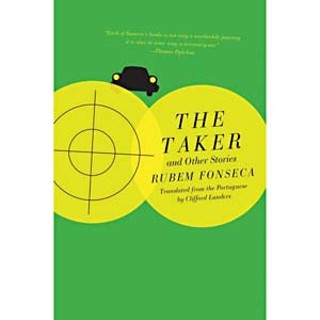Book Review: New In Fiction
The dominant tone here is one of doom and existential catastrophe
Reviewed by Josh Rosenblatt, Fri., Jan. 16, 2009

The Taker and Other Stories
by Rubem Fonseca (translated by Clifford Landers)Open Letter Books, 166 pp., $15.95
If there's a writer out there more death-obsessed than Brazilian Rubem Fonseca, I'd love to hear his name. I'm just not sure I'd like to read his work.
In The Taker and Other Stories, the first collection of Fonseca's short stories to appear in English, the dominant tone is one of doom and existential catastrophe. Everywhere you look, the forces of evil are triumphing over the forces of good, or rather the forces of chaos are smothering the forces of order, calling to mind the apocalyptic novels of Cormac McCarthy, transplanted to a late-20th century metropolis and stripped of any biblical, or even poetic, resonance. Fonseca's violence is lurid and grisly, his prose stark and unblinking, an unrepentant slap in the face to the hopes of liberal literary theorists who believe the redemptive forces of language and art are enough to make sense of brutality and economic despair.
In the collection's namesake, "The Taker," a poor man from one of Rio de Janeiro's impoverished favelas converts his jealousy of the city's wealthy into murderous rage and class-conscious vigilantism. He hunts down the city's privileged like so many deer, confident that anything done to cripple a system in which some live in splendor while others live in squalor is just. In "Angels of the Marquee," a retired widower seeking to do good is sliced and diced for his troubles, a cautionary tale to anyone living with the delusion that charity in this world will bring about salvation. Even the innocent and the lonely aren't free from the violence, as demonstrated by a harried businessman in "The Other" and an unsuspecting pedestrian in "Night Drive."
Fonseca has volumes to say about the tenuousness of life, the viciousness of our fellow humans, and the price to be paid for the creation of a system built around the success of the few coming at the expense of the many, and he says them in the calm, cool, ironic tone of the true nihilist: Nothing matters anyway, so what difference does it make what one person does to another? You could call his style "journalistic" or "existential," but "ruthless" might be more to the point.










